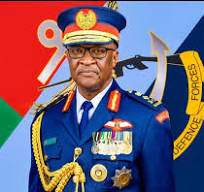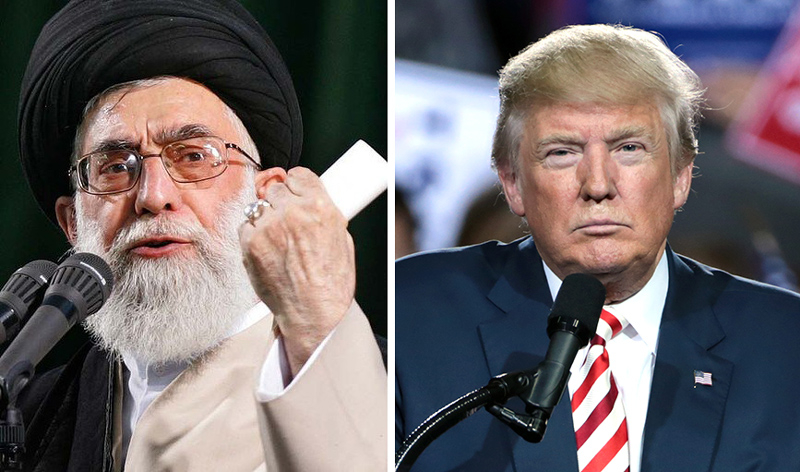2016 was a tough year for the Palestinians. It was tough not only for those Palestinians living in the West Bank under the Palestinian Authority (PA) regime, or the Gaza Strip under Hamas. When Westerners hear about the “plight” and “suffering” of Palestinians, they instantly assume that the talk is about those living in the West Bank or Gaza Strip. Rarely does the international community hear about what is happening to Palestinians in the Arab countries. This lapse doubtless exists because the misery of Palestinians in the Arab countries is difficult to pin on Israel.
The international community and mainstream journalists only know of those Palestinians living in the West Bank or the Gaza Strip. Of course, life under the Palestinian Authority and Hamas is no box of dates, although this inconvenient fact might be rather unpleasant to the ears of Western journalists and human rights organizations.
In any event, mainstream media outlets seem to prefer turning a blind eye to the plight of Palestinians living in Arab countries. This evasion harms first and foremost the Palestinians themselves and allows Arab governments to continue their policies of persecution and repression.
The past few years have seen horror stories about the conditions of Palestinians in Syria. Where is the media attention for the Palestinians in this war-stricken country? Palestinians in Syria are being murdered, tortured, imprisoned and displaced. The West yawns.
Foreign journalists covering the Middle East swarm by the hundreds throughout Jerusalem and Tel Aviv. Yet they act as if Palestinians can only be found in the West Bank and the Gaza Strip. These journalists have no desire to go to Syria or other Arab countries to report about the mistreatment and trespasses perpetrated by Arabs against their Palestinian brothers. For these journalists, Arabs killing and torturing other Arabs is not news. But when Israeli policemen shoot and kill a Palestinian terrorist who rams his truck into a group of soldiers and kills and wounds them, Western reporters rush to visit his family’s home to interview them and provide them with a platform to express their thoughts.
Palestinians living in Syria, however, are less fortunate. No one is asking how they feel about the devastation of their families, communities and lives. Especially not the hundreds of Middle East correspondents working in the region.
“The year 2016 was full of all forms of killings, torture and displacement of Palestinians in Syria,” according to recent reports published in a number of Arab media outlets.
“The last year was hell for these Palestinians and its harsh consequences will not be erased for many years to come. During 2016, Palestinians in Syria were subjected to the cruelest forms of torture and deprivation at the hands armed gangs and the ruling Syrian regime. It is hard to find one Palestinian family in Syria that has not been affected.”
According to the reports, Syrian authorities are withholding the bodies of more than 456 Palestinians who died under torture in prison. No one knows exactly where the bodies are being held or why the Syrian authorities are refusing to hand them over to the relatives.
Even more disturbing are reports suggesting that Syrian authorities have been harvesting the organs of dead Palestinians. Testimonies collected by some Palestinians point to a Syrian government-linked gang that has been trading in the organs of the victims, who include women and children. Another 1,100 Palestinians have been languishing in Syrian prisons since the beginning of the war, more than five years ago. The Syrian authorities do not provide any statistics about the number of prisoners and detainees; nor do they allow human rights groups or the International Committee of the Red Cross to visit prisons and detention centers.
The most recent report about the plight of Palestinians in Syria states that 3,420 Palestinians (455 of them females) have been killed since the beginning of the war. The report, published by the Action Group For Palestinians of Syria, also reveals that nearly 80,000 Palestinians have fled to Europe, while 31,000 fled to Lebanon, 17,000 to Jordan, 6,000 to Egypt, 8,000 to Turkey and 1,000 to the Gaza Strip. The report also mentions that 190 Palestinians died as a result of malnutrition and lack of medical care because their refugee camps and villages are under siege by the Syrian army and armed groups.

Palestinians flee Yarmouk refugee camp, near Damascus, after fierce fighting in September 2015. (Image source: RT video screenshot) |
Alarmed by the indifference of the international community to their plight, Palestinians in Syria have resorted to social media to be heard in the hope that decision-makers in the West or the UN Security Council, obsessed as they are with Israeli settlements, might pay attention to their suffering. The latest campaign on social media, entitled, “Where are the detainees?” refers to the unknown fate of those Palestinians who have gone missing after being taken into custody by Syrian authorities. The organizers of the campaign revealed that in the past few years, 54 Palestinian minors have died under torture in Syrian prisons. The organizers noted that hundreds of prisoners and detainees, after they were apprehended by the Syrian authorities, remain unaccounted for.
Another report revealed that more than 80% of the Palestinians living in Syria have lost their jobs and businesses since the beginning of the civil war. The report added that to support their families, many Palestinian children have been forced to quit school and search for work.
Yet to the international community and Western media, these figures and reports about the Palestinians in Syria are ho-hum at best. The Arab countries care nothing about the Palestinians in Syria who are being killed, tortured and starved to death. In the Arab world, human rights violations are not news. When human rights are respected in an Arab country, that is news.
The Palestinian leadership in the West Bank and Gaza Strip are also blind to the suffering of their people in the Arab world, specifically in Syria. These so-called leaders are too busy ripping out each other’s political throats to be bothered with the welfare of their people, being smothered under the undemocratic and repressive regimes of the Palestinian Authority and Hamas. Such leaders are more concerned about President Donald Trump’s intention to the move the US embassy to Jerusalem than about their own people. In the past two weeks, Mahmoud Abbas and his officials have not missed an opportunity to warn that moving the US embassy to Jerusalem would spark unrest in the Middle East. The killing, torture and displacement of Palestinians in an Arab country seem not to be on their radar.
It remains to be seen whether the UN Security Council will get its priorities straight and hold an emergency session to discuss the murderous campaign against Palestinians in Syria. Perhaps, somehow, this will overtake “settlement construction” as a topic worthy of world condemnation.
Khaled Abu Toameh, an award-winning journalist, is based in Jerusalem.




































